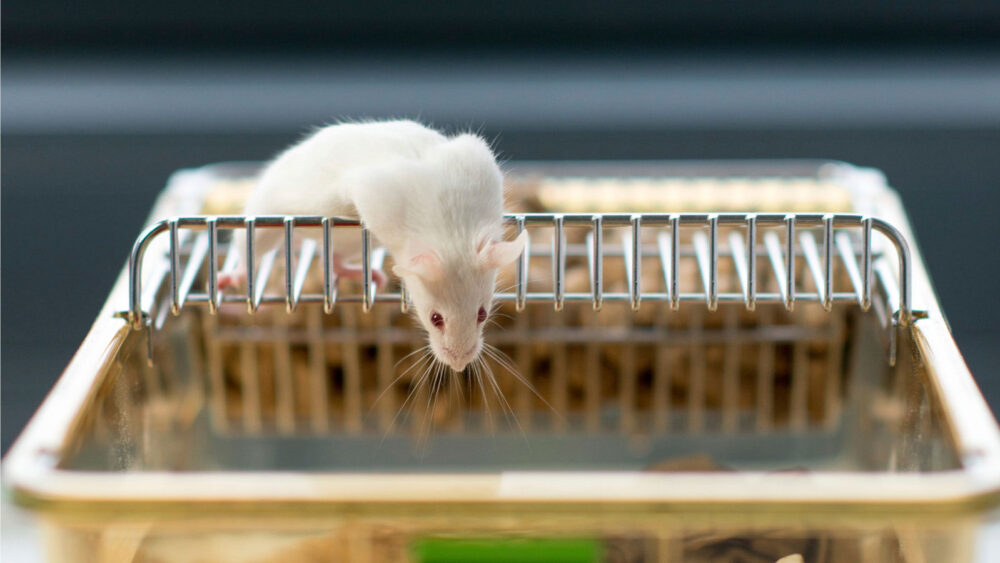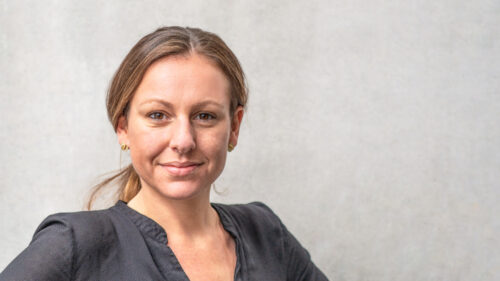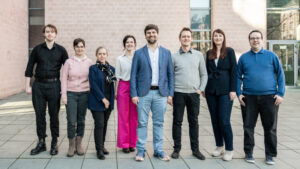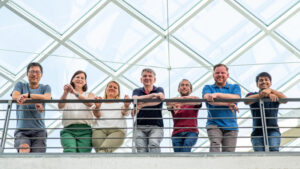

Animal Facility
Animal welfare and good research go hand in hand
Although the development of alternative methods to animal experiments is progressing steadily, certain scientific questions still require the use of animal models. In particular, for the understanding of diseases such as autoimmunity, in which different organ systems and cell types are involved, the complexity of a living organism is currently indispensable.
To answer questions in the context of the complete organism, the DRFZ operates a state-of-the-art animal facility and houses a variety of different mouse strains. Genetically modified mice in particular are an important component of biomedical research at the DRFZ. The facility is divided into an animal experimental unit in Berlin Mitte and a separate breeding facility in Berlin Marienfelde. Specially trained animal technicians and veterinarians guarantee optimal housing conditions and their monitoring in terms of animal welfare.
All mice are kept under so-called SPF (specified pathogen-free) conditions to ensure that they are free of pathogens that could affect the health of the animals and the success of planned experiments. To prevent pathogen intrusion, the facility is equipped with personnel hygiene barriers. All materials introduced are being sterilized by autoclaving beforehand. In addition, the health status of the mice is assessed at regular intervals to detect potentially pathogenic microorganisms at an early stage.
The DRFZ, an institute of the Leibniz Association, is committed to a transparent communication of the animal experiments performed at the institute towards the public. It is a member of the information initiative of scientific institutions “Tierversuche Verstehen” (engl.: Understanding Animal Research; www.tierversuche-verstehen.de), which provides information about animal experiments at publicly funded research institutions and promotes the dialogue between science and the public. Researchers at DRFZ are always obliged to follow the 3R principle in conducting animal experiments to reduce animal suffering in experiments to an indispensable level. The 3R stand for “Replace, Reduce, Refine”, in other words avoiding, reducing and improving animal experiments. In implementing the 3R, they are advised by independent animal welfare officers who also ensure and monitor animal welfare and compliance with all guidelines and regulations. The Animal Welfare Committee, which meets regularly and is composed of animal welfare officers, animal technicians and experimental scientists, supports the animal welfare officers in their work.
The DRFZ also offers a training program led by veterinarians to train scientists for their animal experimental activities in accordance with current legislation and considering animal welfare. This includes a theoretical and a practical part. Successful participation is certified. For all employees involved in animal experiments, the veterinarians also initiate and conduct regular training courses and advanced training with regard to the protection of laboratory animals and the 3Rs principle.
Keywords
Animal welfare
Animal protection
3R principle


Contact: info@drfz.de
Head of Animal Facility
Dr. sc. agr. Lena Reiske
Animal Welfare Officer
Dr. med. vet. Theres Manthey
Dr. sc. agr. Lena Reiske (deputy)
Prof. Anja Hauser (deputy)
Animal caretaker:
S. Gruczek
M. Hoffmann
C. Kasprzak
H. M. Pham
P. Streckert
V. Theißig,
P. Thiemann
Contact: info@drfz.de
Contact: info@drfz.de
Dr. Uwe Klemm, Experimental Animals, Max Planck Institute for Infection Biology, Berlin
Dr. Geert Michel, Transgen Facility, FEM, Charité University Medicine Berlin
Ronald Naumann, Transgenic Core Facility, Max Planck Institute of Molecular Cell Biology and Genetics, Dresden
Frank Zimmermann, Biotechnology Laboratory, University Heidelberg
Contact: info@drfz.de

 Deutsch
Deutsch
